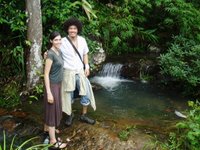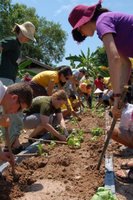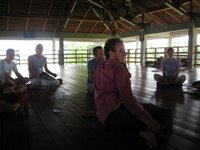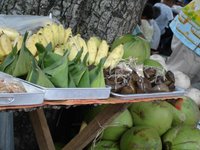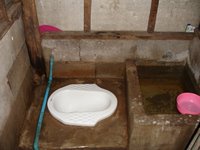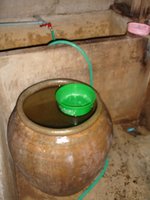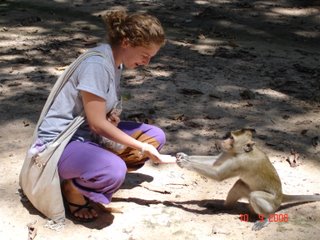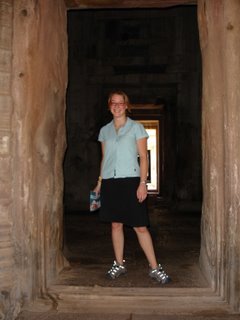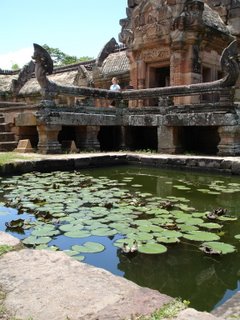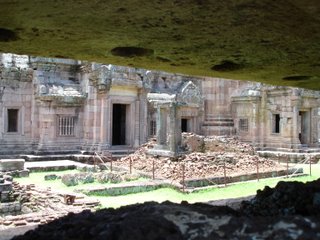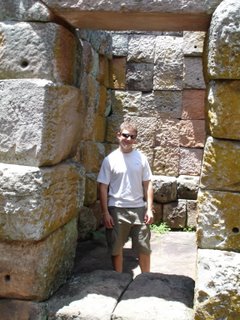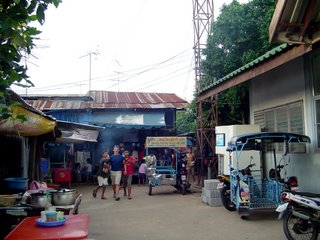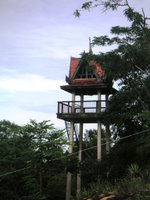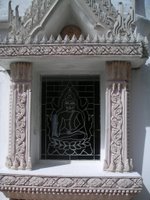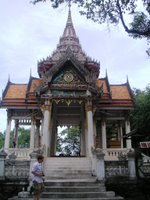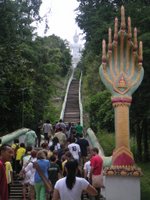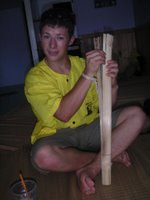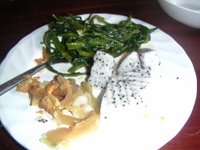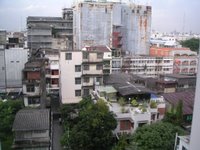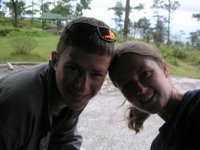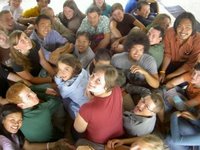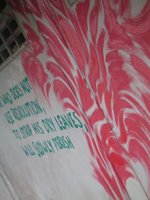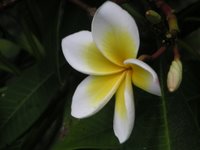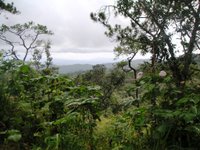Me: What budget proposal?
Roman: Exactly.
So just as Roman, Ari, and I are on our way to actually completing a task for our internship with the Thai Seeka Association, we are told to drop everything. We are to write a funding proposal, to no one in particular, for a project about sustainable agriculture and waste.
Problem 1: We don't know what the sustainable agriculture and waste project is.
Problem 2: Neither do they.
Problem 3: We are to create a vision statement, a project description, a set of 16 activities in three phases; a set of specific objectives, and a set of indicators to measure success of each objective; a project timeline, and a budget. This was supposed to be started that night and finished the next day, which of course it was not. Today, Saturday, class went from 9 am to 6pm, at which point I had a two-hour meeting. Tomorrow we do have a day off, but we also have 150 pages or more to read for class. Less sleep, says Ajaan Dave. Less sleep.
I am really excited about interning with Thai Seeka. It is an alternative education model, more or less an extension of CIEE into Khon Kaen local schools. And I have come to realize that it is a veritable model for sustainable development: bringing stakeholders together to create projects that address social and environmental sustainability directly, while empowering communities to work together to solve their most pressing problems, decreasing the distance between decision-makers and the people who are affected by those decisions. I have even considered that I might write a senior thesis, using Thai Seeka as a case study for sustainable development.
Moreover, the template of educational projects that we have been working on is something I can use in the Peace Corps, if I choose to do environmental education. Writing a grant proposal, from scratch, is difficult, but definitely a worthwhile learning process. And contributing to both the writing and realization of the organizational vision is of a lot of interest to me. We are truly expected to become Board members of an NGO for three months. And we can go wherever we'd like with it.
But how am I supposed to handle all this work, and all this freedom? Making up the agriculture project as we go. . . Defining our own roles in an organization we don't understand. . . Can't you just give me a box to sit in? I have no context in which to work. It is supposed to give us ownership of the work we do, but that requires a slow and arduous process of trial and error. And we don't have time! We are leaving again for "Land Unit" trips on Monday, then our next trip will be to Bangkok. . . And we need to have our funding proposal done by then, so we can present to potential donors while we're in the city!
Ahh, sleep. How I miss you.




